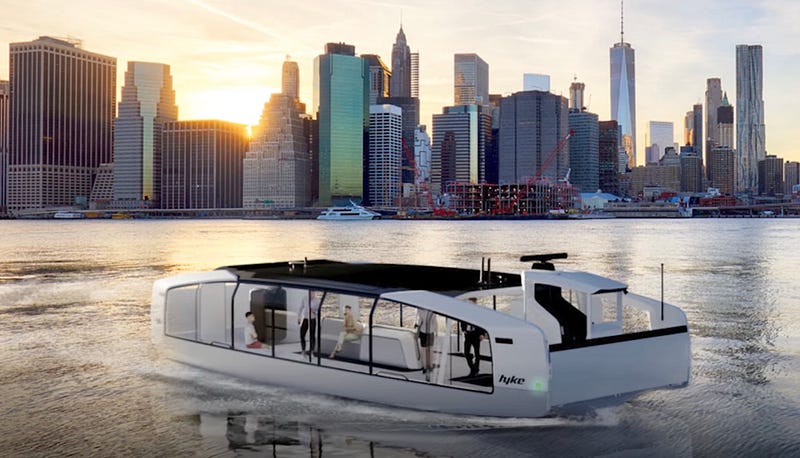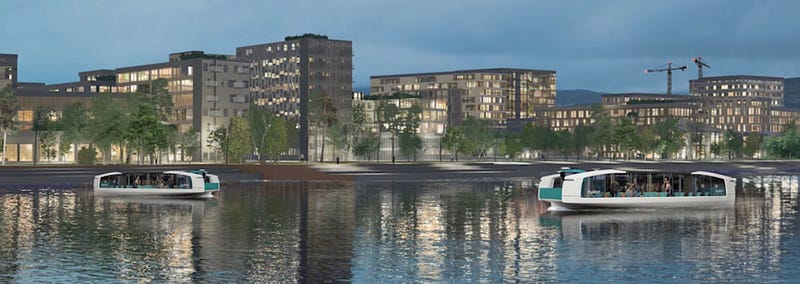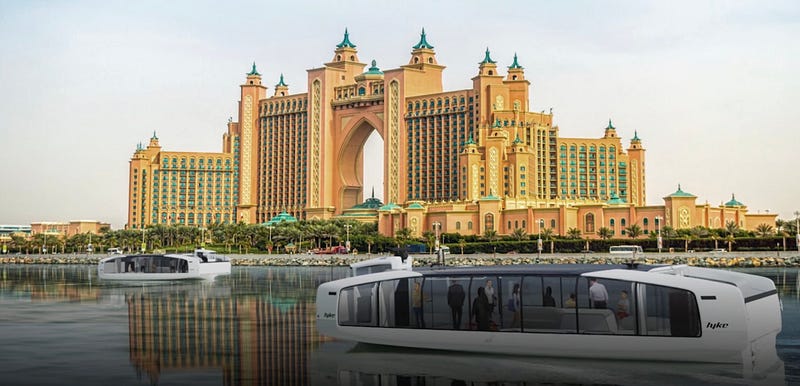Revolutionizing Ferry Travel with Hyke: The Solar-Powered Future
Written on
The New Era of Ferry Travel
If you've ever taken a ferry ride, you might recall the massive, drab vessels that traverse waters across the globe. While they serve their purpose of transporting passengers from one location to another, they often lack charm and eco-friendliness. Enter Hyke, a solar-powered ferry poised to redefine the transportation landscape. This article delves into the advantages of Hyke, showcasing its modern aesthetics and emission-free functionality. Prepare to bid farewell to traditional ferries and embrace a new era of travel.

A Vision for Tomorrow
Hyke is not your average ferry; it's a state-of-the-art vessel with an inviting and practical design. With both interior and exterior updates, Hyke caters to contemporary travelers seeking comfort and style. The ferry includes expansive windows that allow up to 50 passengers to enjoy scenic views, along with open-air decks that enhance the natural experience. Whether commuting or enjoying a leisurely ride, Hyke's design fosters a connection with the surrounding environment.
Eco-Conscious and Zero Emission
One of Hyke's standout features is its commitment to renewable energy. Unlike conventional ferries that depend on fossil fuels, Hyke utilizes a 7 kW solar power system to assist its motors, resulting in a completely emission-free operation. This makes Hyke an excellent option for cities aiming to minimize their carbon emissions and promote sustainability. Additionally, as an electric vessel, it generates significantly less noise pollution compared to traditional ferries and gas-powered boats. Say goodbye to the disruptive sounds of older engines and enjoy a tranquil journey.
Smart Dockside Charging
Hyke incorporates an advanced dockside charging system, which is another innovative aspect of its design. This automated charging mechanism allows the ferry to recharge while docked, ensuring it’s ready for its next trip. This feature eliminates the need for manual charging, which can be both labor-intensive and costly. The use of autonomous technology streamlines the charging process, making it easier for operators to manage their fleet efficiently.
Adaptive Deployment
Hyke’s design also offers versatility for ferry operators. With a smaller capacity compared to traditional ferries, the vessel is easy to deploy in areas with high transit demands. This adaptability allows cities to incorporate Hyke into existing transport systems, facilitating easier movement for residents and tourists alike. Whether crossing a harbor or navigating a river, Hyke’s user-friendly design serves a diverse range of commuters.

Prioritizing Safety and Security
Safety and security are also central to Hyke’s design. Equipped with autonomous technology, the ferry minimizes the risk of human error by reducing the need for constant oversight. Furthermore, the advanced navigation system ensures that passengers are always informed of their location, allowing for swift and effective responses in emergencies.
The Next Step in Mobility
As urban areas expand and transportation demands change, the future of mobility calls for innovative solutions. Hyke embodies this future of ferry travel with its sleek design, eco-friendly operations, and smart charging capabilities. Its potential to enhance existing transit systems makes it an invaluable asset for cities seeking to lower their carbon footprints and streamline transit for residents. As we strive for a more sustainable and interconnected future, Hyke is setting the standard for mobility in smart cities.

Conclusion
Hyke transcends the conventional ferry; it stands as a symbol of progress in the transportation sector. Its inviting design, zero-emission operation, and effective charging systems render it a pivotal resource for any city aiming to modernize its transit infrastructure. Whether you are a sustainability advocate or just in search of a comfortable way to travel, Hyke promises an enriching experience. So, are you ready? The future of mobility awaits, and Hyke is leading the charge.